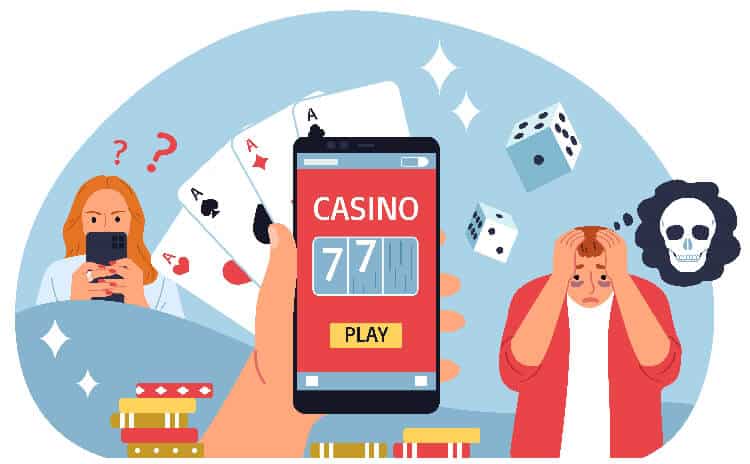The Dangers of Fentanyl
Drugs and cutting agents It has always been the case that drugs such as Cocaine or Heroin are “cut”[...]
Recent years have seen a very significant rise in the number and availability of websites encouraging people of all ages to gamble. The majority of these companies will deny that they are encouraging anyone to gamble, and they do provide strict disclaimers and advise people to gamble sensibly. However the sheer scale of the promotion and encouragement to gamble on gambling websites via social media, TV, Radio and sponsorship of major events such as premier league football is now of epic proportions. Running alongside this is the very noticeable increase in the number of people who have almost certainly as a direct result of this promotion, developed a gambling addiction.

So what is a gambling addiction? Gambling addiction – also known as gambling disorder – is the uncontrollable urge to gamble even when aware that your actions are having a detrimental effect on yours and other people’s lives and when you continue to gamble even though it is having a continuing negative effect. In essence a gambler with an addiction is different from a professional or social gambler in that they lose the ability to stop and are prepared to risk something they value in the hope of getting something of even greater value.
Noticing any of these changes or symptoms in yourself or someone close to you will go towards helping to identify a gambling disorder as the condition is probably the most secretive of all addictions. These days everyone is constantly on their smartphone or laptop and what they are doing on it is rarely questioned.
As with all addictions, if you have a gambling addiction, you need to take the first step of asking for help. This is likely to be once the addiction has progressed to quite extreme levels as, being more difficult to detect, it is likely that your gambling addiction has been unchallenged for some while and you have thought that you could control it yourself. The sooner you get help the better but it is likely that your life situation will reach a critical stage, particularly your finances, before you finally admit that you need it.
Having finally asked for help, then what are the available options? One of the most successful options is for you to be admitted into a residential addictions treatment clinic or gambling rehab for up to the recommended treatment period of 28 days (if someone can fund it for you). This means that you will be in a safe environment with no available means to place a bet. This allows the addictive cycle to be broken, which is a critical first step, and which is so difficult to achieve within the home environment . Whilst in gambling addiction treatment there would be participation in a daily structured therapy programme which would also include gaining an understanding of the 12 Step programme which is the highly successful programme used by Alcoholics Anonymous. It has been incorporated by Gamblers Anonymous, known as GA, when it was founded as far back as 1957 and it offers support groups for anyone with a gambling disorder.
The complete wording of the 12 Steps is exactly the same as in AA apart from the first Step where the word Alcohol is changed to Gambling. The form of therapy used in residential gambling treatment is predominantly CBT based which is short for Cognitive Behavioural Therapy. This modality is about getting you to address that your thinking is irrational and to be able to focus and process a more rational approach to your daily life.
If you have a gambler in your family or you are a concerned friend, you can attend a support group called Gam-Anon. These support groups for family and friends can be attended at any time and not necessarily when a gambler decides to go into gambling addition treatment or is seeking help. You can encourage a gambler to seek help sooner by challenging them and not putting up with their behaviour.
Both Gamblers Anonymous and Gam-Anon support groups can be found near your home address by inputting your postcode on to their respective websites. It is also common for someone with a gambling disorder to consider stopping drinking alcohol as alcohol is a means of lowering inhibitions and clouding rational thinking which could lead to someone deciding to have “just one last bet.” Also going into a pub for a drink there is invariably a tempting “fruit machine” that could lead to a relapse after a few drinks.
If it is not possible to be admitted to a private gambling treatment centre then a care pathway of having sessions of CBT therapy and attending GA support groups on a very regular basis would be an alternative. There is also in the UK the National Gambling Helpline whose number is 0808 8020 133 and they offer free confidential help to anyone who is worried about their gambling. This could be a first step in terms of sharing with someone who will understand.